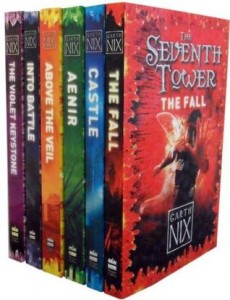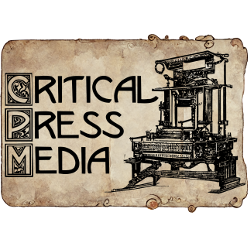 Every so often, I come across a book series that really intrigues me with elements of the setting. Because I really enjoyed his “Keys to the Kingdom” series, I put some faith in Garth Nix and picked up “The Seventh Tower” series.
Every so often, I come across a book series that really intrigues me with elements of the setting. Because I really enjoyed his “Keys to the Kingdom” series, I put some faith in Garth Nix and picked up “The Seventh Tower” series.
The six books of the series describe a world in perpetual darkness, where a magical Veil surrounds the planet, forever blocking the sun from the earth below. Above the Veil, the world continues as it has always been. Below the Veil, the planet is shrouded in perpetual ice, cut off from the heat and light of the sun. Bridging the two worlds is the ancient Castle, home of the Chosen, and the foundation of the seven Towers.
